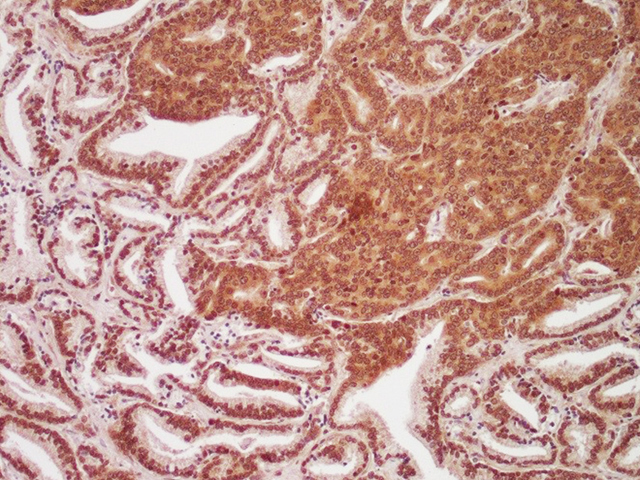| Outline |
|---|
|
We are interested in tumor growth-, invasion-, and metastasis-related molecules and in their pathological roles in urological cancers.
Our focus is to clarify the regulative mechanisms of angiogenesis, lymph-angiogenesis, apoptosis, and cell migration.
In fact, we demonstrated the pathological significance of such cancer-related molecules including matrix metalloproteinases (MMPs), vascular endothelial growth factors (VEGFs), thrombospondins (TSPs), human antigen-R (HuR).
In our laboratory, we have used various cancer cell lines, animal models, and human tissues for these analyses.
Actually, we established a new mouse model of prostate cancer named knock-in mouse of adenocarcinoma prostate (KIMAP), and found important information by using this model. We published original articles regarding efficacy and safety of paclitaxel based chemotherapy in urothelial cancer patients, and alternative treatment strategies of sunitinib for renal cell carcinoma patients. Furthermore, we demonstrated changes of angiogenesis, lymph-angiogenesis, and VEGFs expressions by hormonal therapy in prostate cancer patients. We also pay attention to the urinary disorder including over active bladder and neurogenic bladder. In recent years, we reported the influence of salt intake on nocturia in elderly persons and efficacy of fursultiamine for urinary conditions in patients with HTLV-1 associated myelopathy. Ongoing our projects include: (i) investigating transcriptional mechanisms of prostate specific antigen (PSA), (ii) clarifying prognostic roles of natural killer cells and macrophages in human renal cell carcinoma tissues, (iii) searching epidemiologic impact of PSA screening on prostate cancer mortality, (iv) identifying predictive factors for renal function after renal transplantation, (vi) exploring influence of spina bifida for urinary conditions in infant. |



